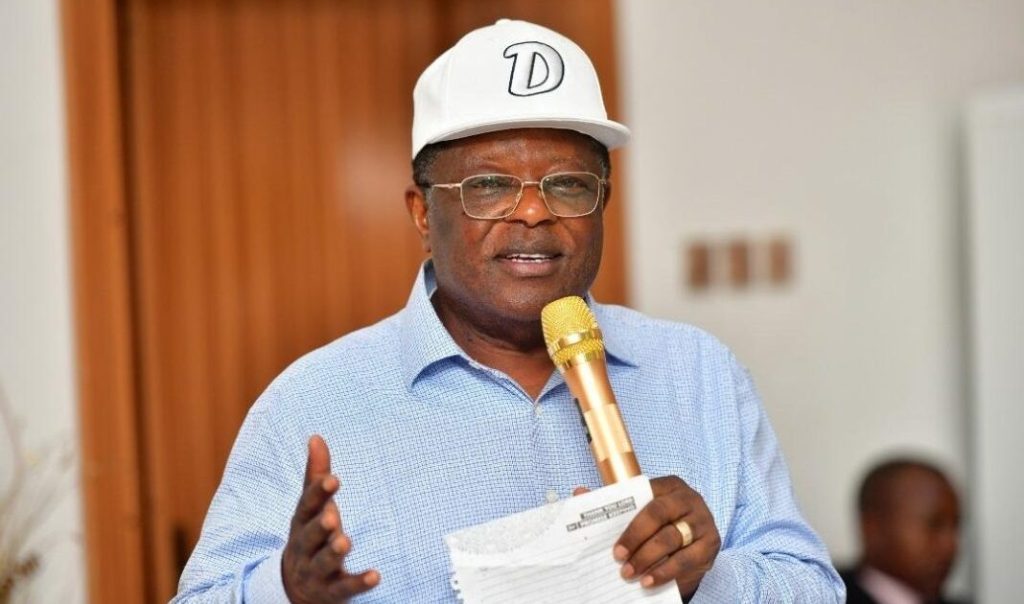The Federal Ministry of Works, headed by David Umahi, has presented a N365.44 billion budget proposal for 2025, earmarked for new road projects and operational vehicle purchases. This represents 36.54% of the total N1.013 trillion allocated for road infrastructure, covering 468 roads and highways nationwide. This proposal contradicts Umahi’s earlier pledge to exclude new road projects from the 2025 budget, a promise made publicly in August 2024. His stated intention was to prioritize the completion of existing and abandoned projects, acknowledging the significant N16 trillion funding gap for over 4,000 ongoing projects inherited by the current administration. This backlog, he explained, was partly due to fluctuations in the naira-dollar exchange rate during the award of these projects. The minister conceded that new projects could only be initiated under the direct instruction of President Bola Tinubu.
Despite the minister’s pronouncements, a closer examination of the ministry’s budget reveals a stark contrast to his stated commitment. The proposed budget outlines 330 new road projects, a substantial deviation from his earlier stance. These projects span various states and include both rehabilitation and new construction initiatives. Examples include the rehabilitation of the Zaria-Hunkuyi-Katsina road and segments of the Katsina-Dabai-Kafur-Malunfashi road, the construction of the Kwanar Dakatsalle-Falgore Tudunwada Dankade road, the Benin bypass, and the Baro bridge. Allocations are also made for the Shendam-Demshin-Angwan Rina road, the Benin-Akure dualization project, the Ukana-Akpautong-Ikot road, rehabilitation works on the Bauchi-Jigawa state border road, and the Benin-Agbo road. These allocations range from N3 billion to N15 billion per project.
Beyond major road construction and rehabilitation, the proposed budget also includes provisions for equipment, vehicles, and consulting services. A sum of N3 billion is earmarked for equipment for project monitoring and consultants, indicating a focus on overseeing project execution and ensuring quality control. Funds are also allocated for the rehabilitation of roads at the David Umahi University of Medical Sciences, the purchase of operational and safety vehicles, office equipment, Hilux vehicles for monitoring and revenue collection, and utility vehicles for human resources. These allocations, though seemingly smaller in comparison to the road projects, demonstrate the ministry’s commitment to equipping its personnel and enhancing operational efficiency.
Beyond the specific project allocations, the ministry’s budget reveals other notable provisions. A substantial N15.02 billion is allocated for contingency funds, which provides a buffer against unforeseen expenses or cost escalations during project implementation. An additional N2 billion is earmarked for vehicles for Senior Special Assistants, suggesting a focus on facilitating the mobility and operational effectiveness of key personnel within the ministry. Furthermore, the budget shows a decrease in the number of planned road projects compared to the 2024 budget, dropping from 1,925 to 468. This reduction aligns with the minister’s initial statement of prioritizing the completion of ongoing projects rather than initiating new ones. However, the overall allocated budget has increased significantly from N548.56 billion in 2024 to N1.013 trillion in 2025.
The “Budget of Restoration,” as it has been termed, also includes allocations for projects beyond direct road construction. A notable allocation of N4 billion is designated for the construction of a presidential helipad and jetty in Lagos, reflecting a focus on enhancing presidential travel infrastructure. Further provisions include N5 billion each for judgment debt and legal fees, suggesting ongoing legal proceedings related to previous projects or contractual obligations. Smaller allocations are designated for solar lights, generator maintenance, and the renovation of the office building, indicating a focus on improving the ministry’s operational infrastructure and energy efficiency.
The backdrop to these budgetary allocations is the significant infrastructure deficit the ministry inherited. Upon assuming office, Minister Umahi reported inheriting 2,604 road projects requiring N13 trillion in funding. This figure has subsequently risen to N19 trillion by October, reflecting the escalating cost of completing these projects and the additional burden posed by factors such as inflation and exchange rate fluctuations. The ministry also received N300 billion in emergency funding to address critical road failures caused by flooding, underscoring the vulnerability of the road network to environmental factors and the need for proactive maintenance and rehabilitation efforts. This substantial funding increase, despite the reduced number of projects, highlights the inherent challenges in tackling the existing infrastructure backlog and the increasing cost of construction.














